You probably started thinking about the day your kid would head off to college when they first started crawling. But what you may have forgotten about is all the preparation they need in order to get accepted.
Gone are the days of just filling out a college application and submitting an essay. Now, students are expected to create a compelling-enough resume that highlights who they are and what their significant accomplishments say about them as community members and future college students.
If you’ve only been focusing on tuition and how far away they may live, don’t start to panic. We’ve spoken to several experts and collected the 20 top priorities for your kid’s college resume.
1. Brainstorm First
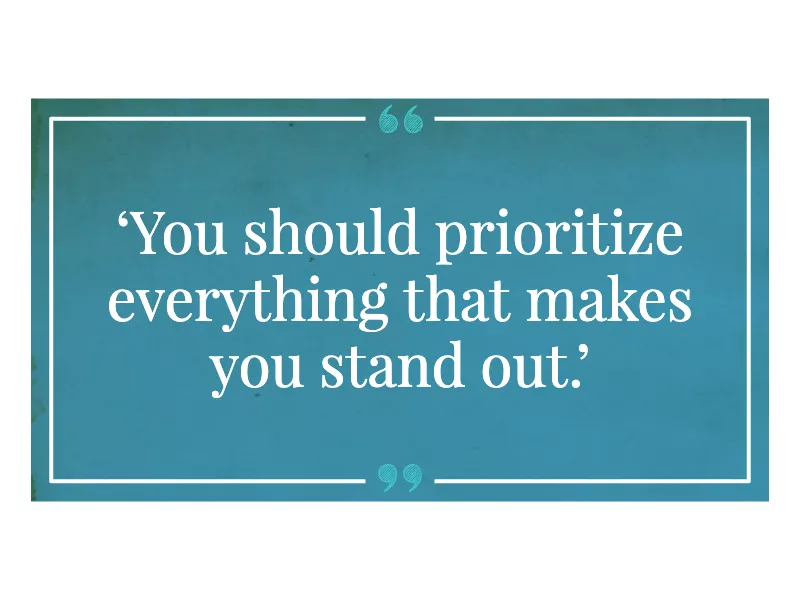
Lindsey Conger works with students daily to draft their first resume as an independent college counselor at Moon Prep. She tells students to really think about their high school careers first before they jump into drafting the first version of their resume.
“Brainstorm your accomplishments, awards, leadership roles, special talents, jobs or community service,” she says. “You should prioritize everything that makes you stand out. Highlight what makes you unique, and what shows your initiative and passion.”
2. Brevity Is Key
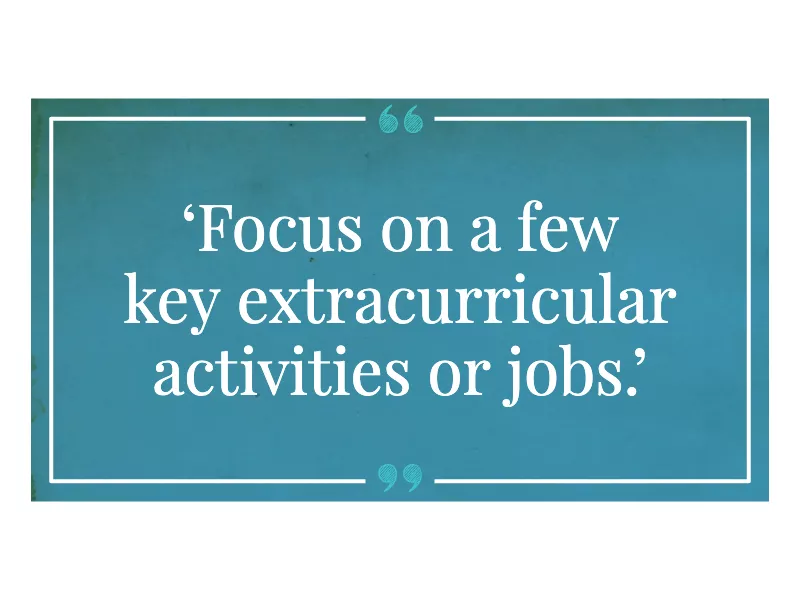
Yelena Shuster is a college admissions essay expert and an Ivy League graduate who believes less is more when it comes to your kid’s college resume. “Many students feel pressure to pad their resume during this high-stress time frame,” she says. “I advise against that instinct and to instead focus on a few key extracurricular activities or jobs where the student has really made an impact, showed commitment or demonstrated leadership.”
The main reason, according to Shuster, is because “admissions officers are looking for dedication and growth, not resume fillers.”
3. Use the Word Count
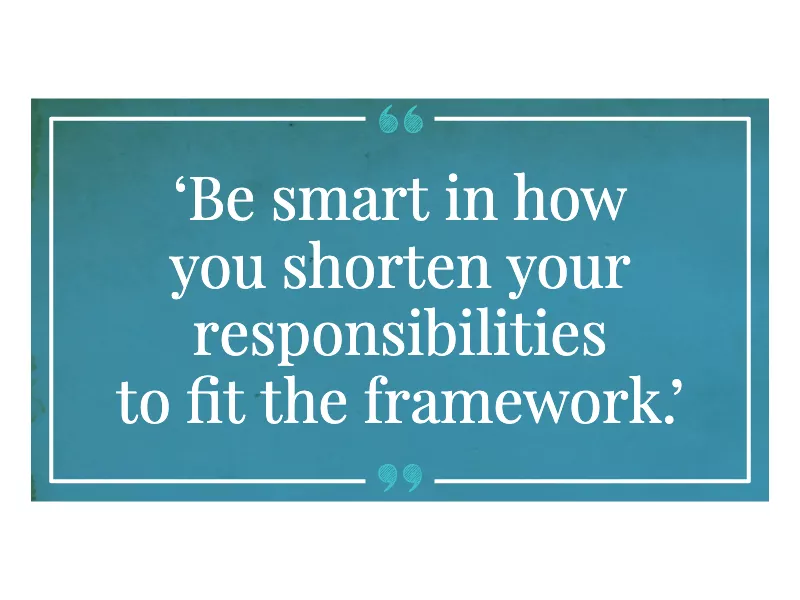
A practical tip Shuster offers to achieve the brevity you’re looking for is to seriously use the word-count function in the document software you’re using to create the resume.
“In the case of the Common App’s Activities List, which is a shortened version of the resume, brevity is key,” she says. “There is a character limit, so you have to be smart in how you shorten your responsibilities to fit within that framework.”
4. Don’t Think One Isn’t Necessary
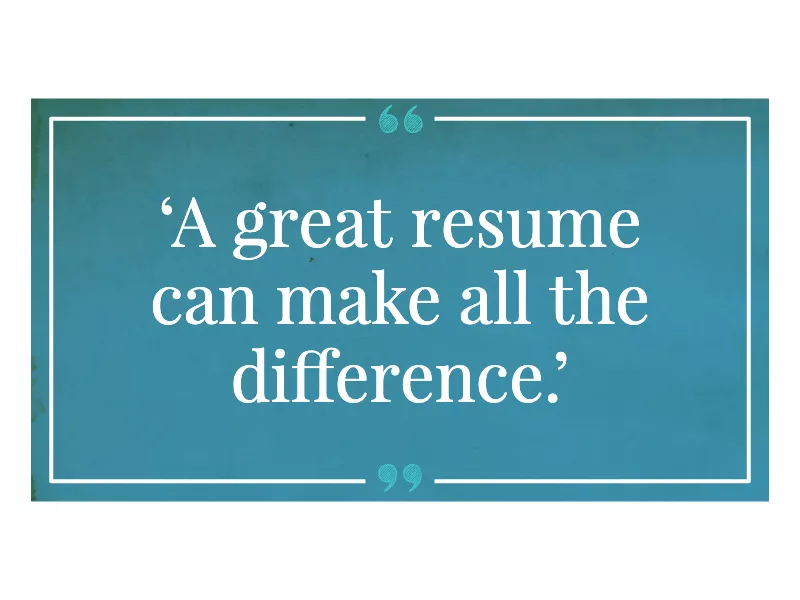
College resumes have become increasingly popular over the years as admission departments expect applicants to be more and more prepared for the workforce before starting classes. “Many colleges on both the Common Application and the Coalition Application encourage students to create and upload a college resume,” says Keri Bahar of KSB College Consulting. “As a college consultant, I strongly encourage students to create one. A great resume can make all the difference.”
So, it is crucial to create one and then edit it to perfection, just like your kid would with an admissions essay.
5. Focus on the Details
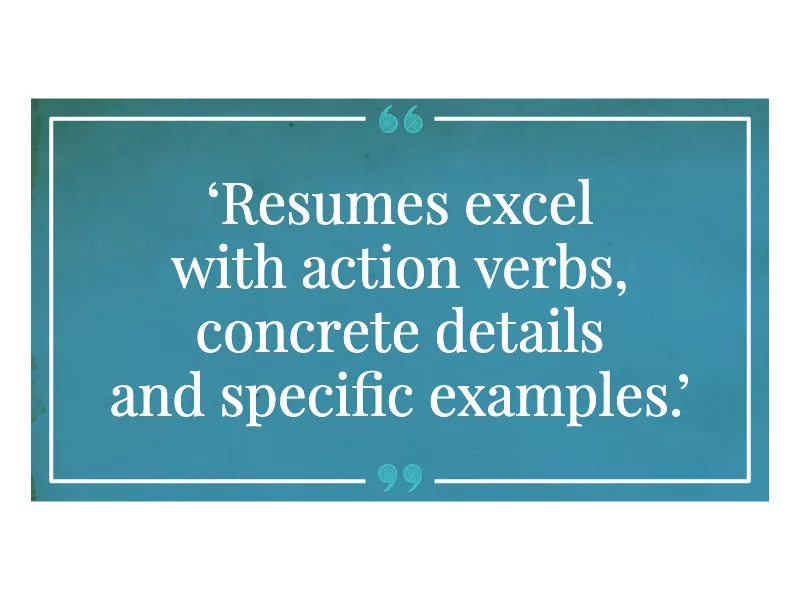
An excellent way to keep your narrative short is to get to the point. By focusing on the details of a specific activity, hobby, club or responsibility, your child can show the full extent of their capabilities without wasting a bunch of space. “Resumes excel with action verbs, concrete details and specific examples,” Shuster says. “Because most leadership activities can sound vague and leadership can mean a lot of different qualities, you want to be specific in describing every way you helped your organization.”
Shuster shares an example of this: “Did you ‘mostly organize events,’ or did you ‘spearhead a new way of organizing events?’ The difference is in the details.”
6. Include the Numbers

When you can, throw in numbers that show exactly how successful you were at a task or responsibility. “It’s important to quantify any successes, if possible,” Shuster says.
“Instead of saying you improved social media engagement, for example, be more concrete. Did you increase the number of followers by 22 percent? You can ask your supervisor or school adviser for help in getting these statistics,” she adds.
7. Highlight Skills
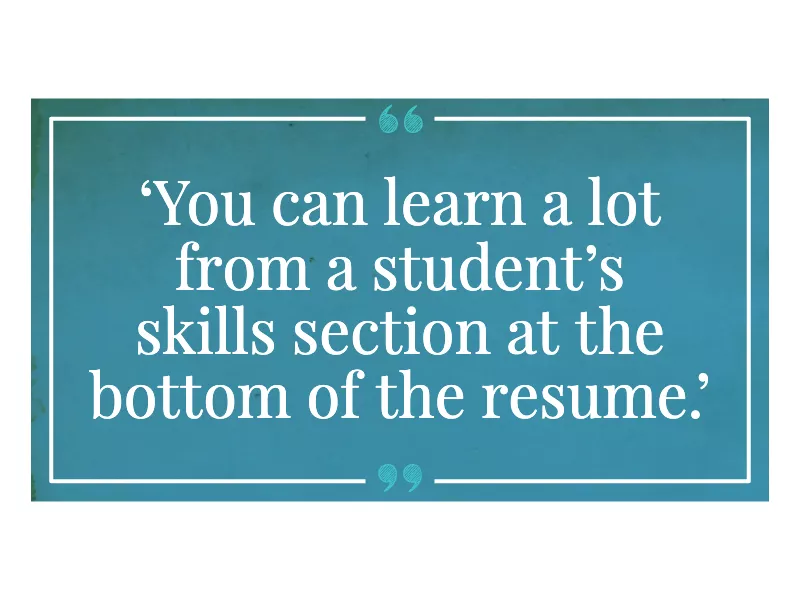
The skills section can quickly communicate your kid’s interests, habits and abilities. So, it is essential to spend time perfecting that section of the resume. “Often, you can learn a lot from a student’s skills section at the bottom of the resume,” Shuster says. “If they have FinalCutPro, that indicates a passion and skill for filmmaking. Adding Google Analytics shows a mind for statistics.”
But fancy software isn’t the only skills you and your child should be working to highlight. “Don’t forget to add languages here to show fluency as well, and don’t forget to add things you take for granted like Microsoft Office or MacBook,” Shuster adds.
8. Don’t Forget Work

While your part-time neighborhood job might not have given you the most college-related learning opportunities, it does show that you juggled added responsibilities in addition to school and extracurriculars. “[This shows] that, besides going to class, you’ve invested time in jobs that provided you helpful life experience,” says Shaan Patel, founder and CEO of Prep Expert.
Additionally, this provides a useful resume for you to use when applying for jobs on and off campus once you start college. “A potential employer will like seeing that you’ve spent time in the real world as well as the classroom,” Patel adds.
9. Remember to Include Education
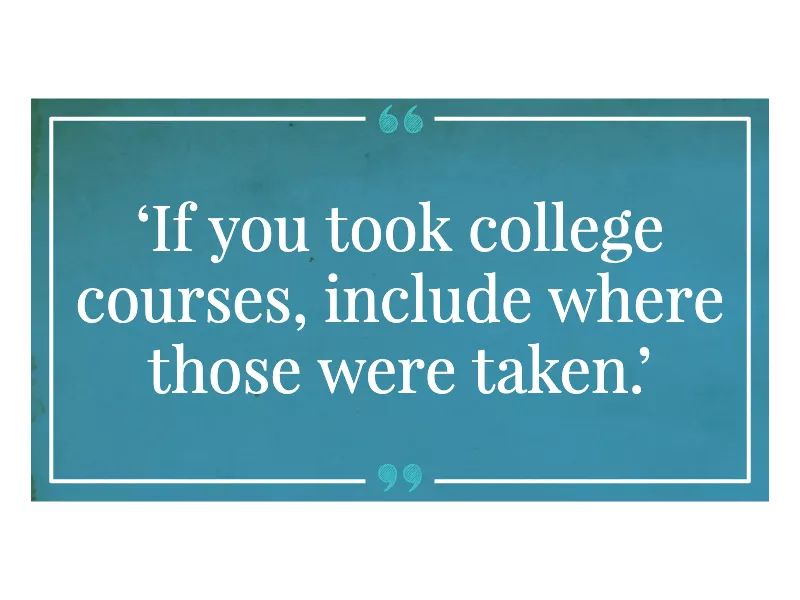
It might seem like your kid’s education isn’t the most critical aspect of their college resume. Every kid goes to school, right? Well, that is technically true; however, it’s best to use the education section of the resume to highlight how your kid’s school experience was unique.
“Include all schools attended. If you took college courses, include where those were taken,” Bahar says. “If you tested well, scores can certainly be included in this section. If your GPA is above a 3.0, include this as well, along with senior courses that you will be taking.”
10. Add in Honors
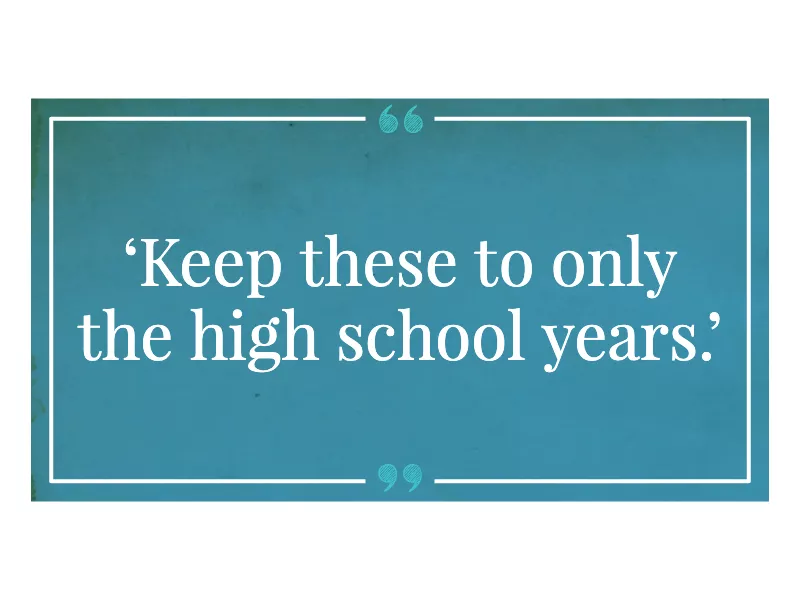
In addition to education, your kid will want to highlight any special honors and awards they received that are relevant to college.
“This can highlight both those earned in school and the community,” Bahar says. “Keep these to only the high school years, however.”
11. Don’t Forget About Family

There are several ways to highlight your child’s dedication and commitment. Perhaps instead of playing sports for four years, they cooked dinner every night for their younger siblings. Shuster says not to leave out these types of highlights when crafting the college resume.
“I also recommend adding any required chores at home, like taking care of your siblings, so that the admissions officers get a full sense of all the commitments you’re responsible for,” she says.
12. Activities, Activities, Activities
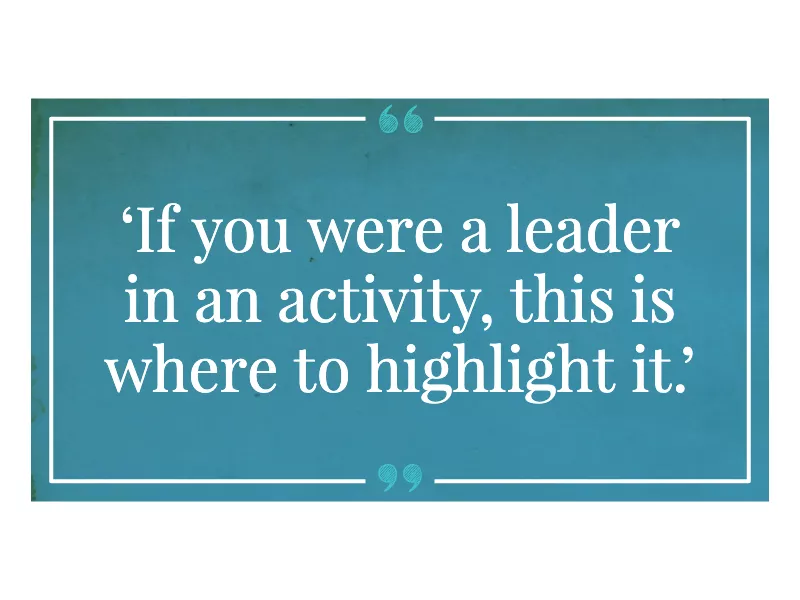
The activities section of your kid’s resume will likely take up the most space, according to Bahar. “Sports, instruments, acting, dance, church or synagogue youth groups, school newspaper, you name it! This is the bulk of the resume,” Bahar says.
But even more important than the activities your kid participated in is the role they played in these organizations. “If you were a leader in an activity, this is where to highlight it. First, list the activity and then further call attention to the leadership position you held and what you did as that editor, VP, secretary, etc.,” she says.
13. Separate Volunteer Work
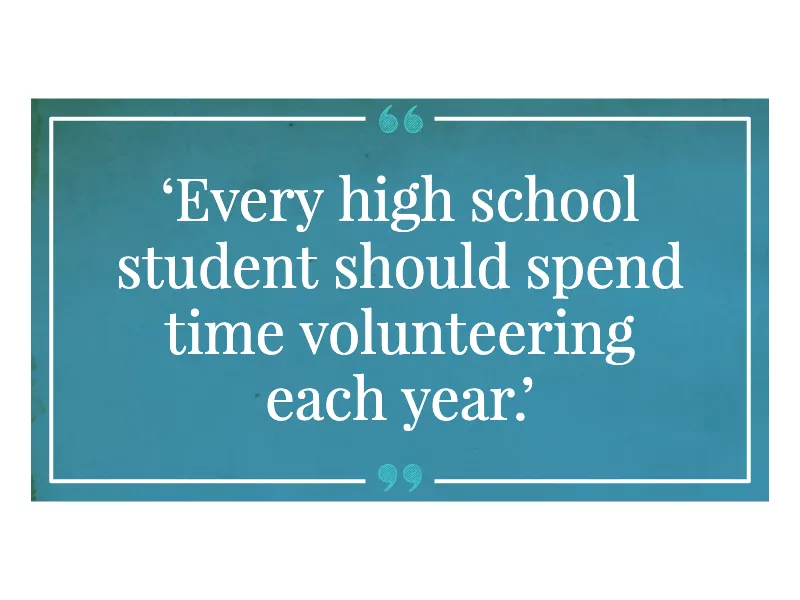
Volunteering is both an activity and unpaid work, but experts agree that your kid should call out their volunteer experiences in a separate section.
“Every high school student should spend time volunteering each year,” Bahar says. “I like to list these separately in this section, so admissions representatives can clearly see that the student cares about his or her community.”
14. Include Opportunities
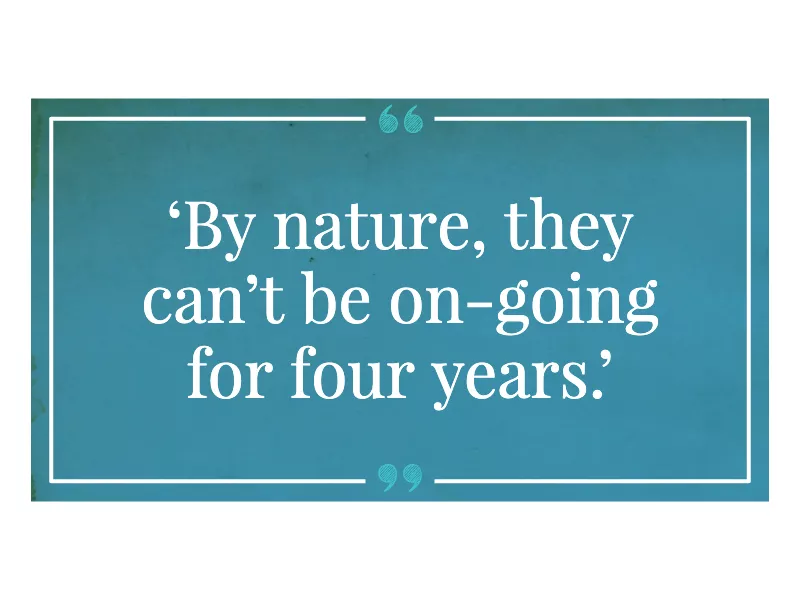
Ah, summer. That long stretch of time when your kid can check out of school and binge watch Netflix. Summer is also a prime time for unique opportunities that students typically can’t take on during the school year. “These are one-hit wonders! A special mission trip, a two-week language immersion trip, History Day Nationals, Habitat for Humanity or working for a political campaign,” Bahar says. “By nature, they can’t be on-going for four years.”
Despite their length, though, the particular opportunities your kid participated in can signal further growth, dedication or mastery of skills to a college admissions counselor, so don’t skip it on the resume.
15. Write Well

Dr. Josie Urbistondo has more than 10 years of experience teaching at the college level, is a faculty member at the University of Miami and works with students on college application essays, interviews and resumes. She has a wealth of editing tips for students who are working on their first resume.
“Can I read it easily? I would limit the resume to one to two pages max,” Urbistondo says. “Sometimes, I see four- to five-page CVs, and that’s overwhelming to digest, which can mean that the reader — admission committees let’s say — can miss the most important gems amidst the noise.”
16. Verbs Are Preferred

When describing your activities, leadership experiences and volunteer projects, use verbs to communicate your work without boring the college admissions counselor.
“Does the language reveal a self-starter, thoughtful student who leaves their mark?” Urbistondo says is the question to ask yourself. “To do so, use action-packed verbs like launched, initiated, implemented, assembled, curated, etc.”
17. Edit, Edit, Edit

Once you’ve created your first draft, you’ll want to edit it a few times to polish your resume.
“Curate your content, so you share the most important, thoughtful accomplishments,” Urbistondo says. “Rather than a string of five- to 10-hour community service appointments that look more like requirements than self-motivated initiative, students should consider zeroing in on a theme or organization they can make a sustained impact in.”
18. Show the Direction Your Headed
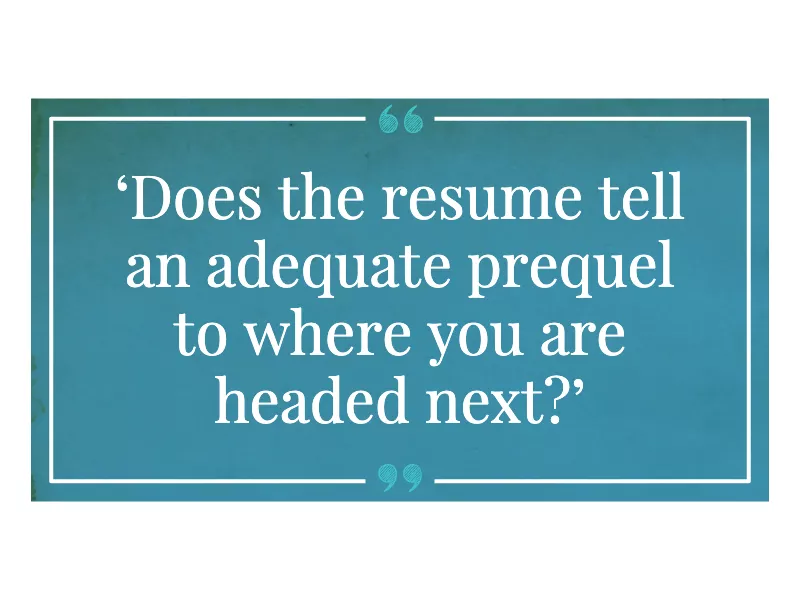
Maybe you were in a science club for a few years before realizing photography was your passion and what you plan on studying in college. Experts agree that students should eliminate information from the resume in favor of showing where they are headed once they arrive on a college campus.
“Does the resume tell an adequate prequel to where you are headed next?” Urbistondo asks. “If your intended major is Materials Science and Engineering, do you have STEM-oriented activities that reveal intellectual curiosity is nurtured beyond just the school’s core curriculum?”
19. The Basics
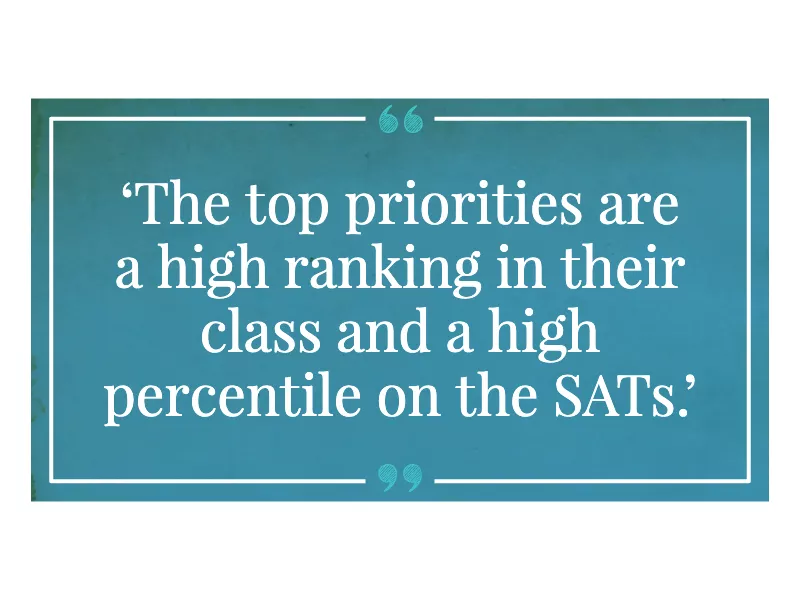
Don’t forget the basic information that a college admissions counselor will need to know about you as well. “The top priorities for a kid’s college resume are a high ranking in their class and a high percentile on the SATs,” says Jonathan Farley, who graduated from the University of Oxford and Harvard University and has taught at MIT, Caltech, Vanderbilt University, The University of the West Indies and Morgan State University.
While some applications might request you list these things, it won’t hurt to include them on your resume as well.
20. Don’t Repeat the Essay

The Princeton Review is famous for its college prep guides. So, it isn’t surprising that it has tips on creating a college resume.
“Highlight things you weren’t able to write about in your college essays or short answers,” the company says. “Use your high school resume to show colleges something new. If your devotion to photography didn’t make it on the application but is a big part of who you are, then showcase your photography cred on your resume.”